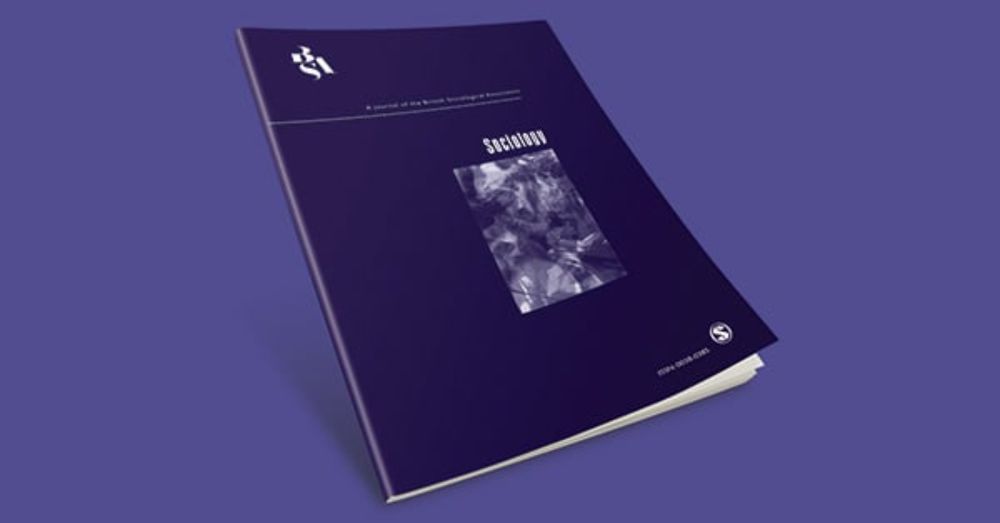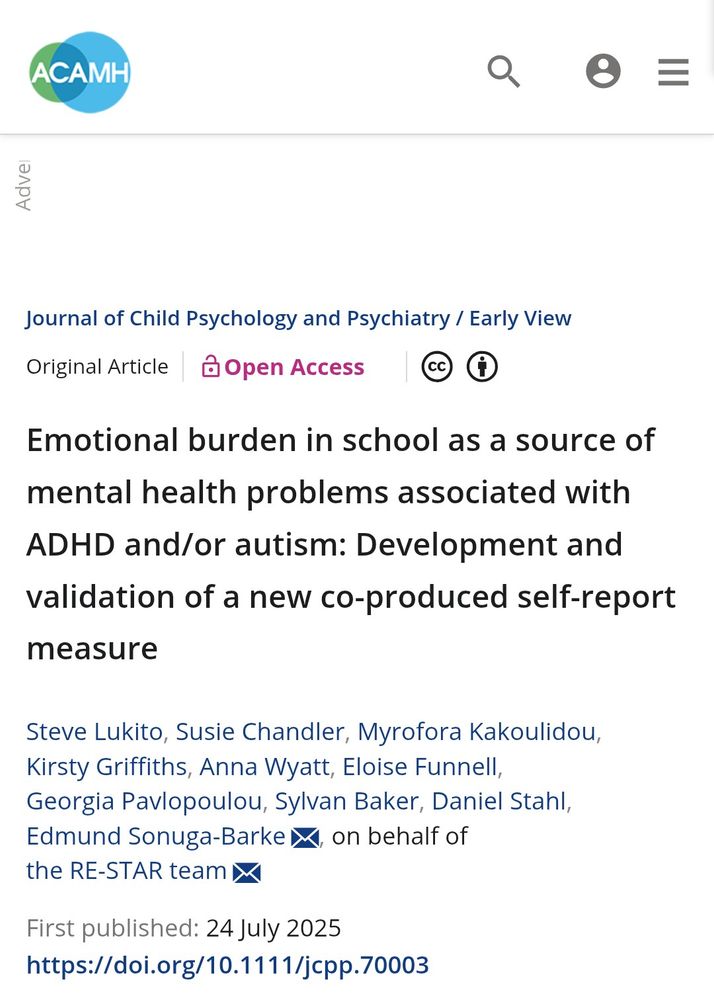
Miguel Lois-Mosquera
@mlmlois.bsky.social
1.3K followers
1K following
120 posts
PhD. Listening to and learning from the experiences of the Autistic Community on wellbeing, inclusion and stigma.
Enfoque Neuroafirmativo
#Psychology & #Education. He/Him
Researcher/Lecturer UNIR & UOC
@mlmlois PresenZa - GBM
https://linktr.ee/mlmlois
Posts
Media
Videos
Starter Packs
Pinned
Miguel Lois-Mosquera
@mlmlois.bsky.social
· Dec 10

La Neurodiversidad en la práctica
El autor presenta, describe, analiza y propone el Enfoque de Afirmación de la Neurodiversidad (EAN) como alternativa y guía para centros educativos y otras organizaciones, a la hora de diseñar y prest...
narceaediciones.es
Reposted by Miguel Lois-Mosquera
No sé si llegue a compartirlo por aquí pero me compré el libro de @mlmlois.bsky.social , 'La #Neurodiversidad en la práctica'. Lo leí, lo releí y tomé apuntes. Un recurso que todos los centros educativos necesitan en sus bibliotecas. Sencillo de entender y aplicar a la práctica. ¡GRACIAS!📙🩷
La Neurodiversidad en la Práctica: Autismo y Educación.
El libro presenta el Paradigma de la Neurodiversidad como marco de referencia para una actuación pedagógica respetuosa con las personas de la comunidad autista siguiendo el Enfoque Neuroafirmativo en el aula
narceaediciones.es/es/educacion...
El libro presenta el Paradigma de la Neurodiversidad como marco de referencia para una actuación pedagógica respetuosa con las personas de la comunidad autista siguiendo el Enfoque Neuroafirmativo en el aula
narceaediciones.es/es/educacion...
New paper focused upon whether the addition of pictures improves understanding of easy read text: www.tandfonline.com/doi/full/10....

Does adding pictures to easy-to-read texts benefit comprehension for people with reading difficulties? A meta-analytic review
Individuals with reading problems may experience communication problems in everyday life. Guidelines for creating accessible information generally include the use of visualizations. However, a synt...
www.tandfonline.com
Reposted by Miguel Lois-Mosquera
Miguel Lois-Mosquera
@mlmlois.bsky.social
· Sep 12

Around 90% of middle-aged and older autistic adults are undiagnosed in the UK, new review finds | King's College London
89 to 97 per cent of autistic adults aged 40+ years are undiagnosed in the UK, according to the largest review of its kind. The review indicated that middle-aged and older autistic adults are facing h...
www.kcl.ac.uk
Reposted by Miguel Lois-Mosquera
Desi Jones
@desirjones.bsky.social
· Sep 8

“I’m Kind of Stuck in the Middle. I Don’t Know Where to Go”: Race, Autism, and Intersectional Stigma Among Black and White Autistic Adults | Autism in Adulthood
Background: Autistic adults frequently experience social stigma, which may be compounded by additional marginalized identities such as race, gender, and sexual orientation. Black autistic adults, in particular, may face unique challenges at the intersection of racial bias and autism stigma. However, the experiences of autistic people with intersecting marginalized identities remain underexplored in research, contributing to a limited understanding of stigma’s impact across diverse communities. Methods: We used qualitative methods to explore how intersecting identities shape autistic adults’ experiences of stigma and marginalization, with an emphasis on Black autistic adults. In total, 32 autistic adults (16 Black and 16 White) completed a semi-structured interview regarding their social experiences. Participants shared recent stories of peer exclusion, acceptance, discrimination, and support that they had experienced, as well as their feelings surrounding these events. We recorded and transcribed these interviews and used an inductive, or data-driven, approach to thematic analysis to identify salient themes in the data. Results: We generated three intersectional themes, which encompassed the unique impact of stigma on those with intersecting identities. Specifically, these themes included: (1) identity-based discrimination shaped by race, gender, and LGBTQ+ status; (2) challenges in obtaining and processing an autism diagnosis; and (3) difficulties navigating personal identity, particularly among Black autistic participants. While autistic adults broadly reported stigma experiences, Black participants often described layered forms of exclusion related to both their race and autistic traits. Across racial groups, women and LGBTQ+ participants also reported distinct forms of marginalization and erasure. Conclusion: These findings highlight how autism stigma intersects with other marginalized identities to shape social experiences. Black autistic adults, along with autistic women and LGBTQ+ autistic people, may encounter compounded barriers to acceptance, identity development, and belonging. These results underscore the need for more inclusive research and supports that attend to the diversity of autistic experiences.
www.liebertpub.com
Miguel Lois-Mosquera
@mlmlois.bsky.social
· Aug 29
Miguel Lois-Mosquera
@mlmlois.bsky.social
· Aug 27

Faro de Vigo on X: "El psicopedagogo e investigador en autismo, Miguel Lois (@mlmlois), impartirá un taller en el #ForoEducaciónVigo centrado en la realidad del alumnado autista en el aula ordinaria: «La inclusión real comienza con sensibilidad y formación» https://t.co/9BhlZWoeQ3" / X
El psicopedagogo e investigador en autismo, Miguel Lois (@mlmlois), impartirá un taller en el #ForoEducaciónVigo centrado en la realidad del alumnado autista en el aula ordinaria: «La inclusión real comienza con sensibilidad y formación» https://t.co/9BhlZWoeQ3
x.com
Reposted by Miguel Lois-Mosquera
Dr Aoife Munroe
@aoifemunroe.bsky.social
· Aug 25

Autistic SPACE for Inclusive Education - Elaine McGoldrick, Aoife Munroe, Rachel Ferguson, Carina Byrne, Mary Doherty, 2025
The continuing policy commitment to Inclusive Education internationally requires the prioritisation of the creation of inclusive schools in practice. Research w...
doi.org
Reposted by Miguel Lois-Mosquera
Reposted by Miguel Lois-Mosquera
Reposted by Miguel Lois-Mosquera














